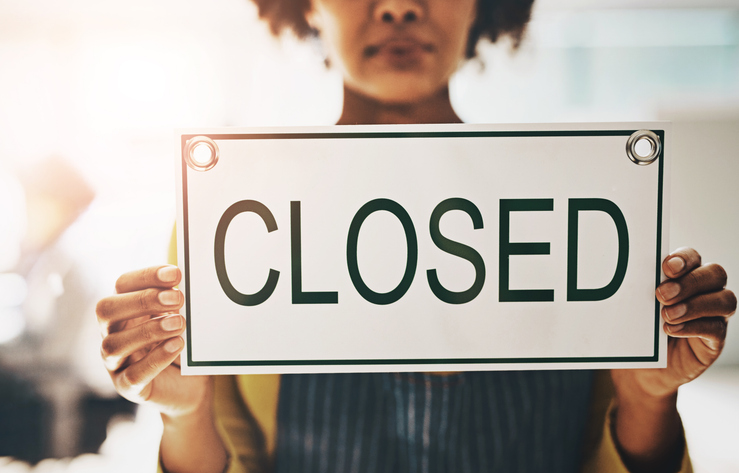Birmingham captured both national and global headlines this past week after a mass shooting occurred Saturday night in Five Points South, one of our popular entertainment districts. As I type here on September 27, 2024, there have been 4 known deaths and 17 more injured.
Unfortunately, these sorts of things are more commonplace in the United States than anyone would like. So much so, they don’t really seem to strike a nerve until it happens near you or to someone you know. Another day, another act of hard-to-fathom violence. Why?
For me, I am old enough to remember when Five Points was THE primary bar/restaurant district in the metro area. On the weekends, your plans were often to simply “go down to Five Points” to see who was there and what was happening. Shoot, Huey Lewis & The News even mentioned the place (Southside) in their hit song “Jacob’s Ladder.”
Since then, thanks to competition from other areas of the City and suburbs, Five Points isn’t the hot spot it was, say, 25-years ago. However, there is/was still enough going on there to make finding a parking space on a Friday night a bit of a challenge.
Unfortunately, I suspect this might change. The reason being is pretty simple. Although the entire metropolitan area is loosely known as Birmingham, the actual City of Birmingham makes up only about one-sixth of the region’s population. According to most recent estimates, it is actually 16.7%, or thereabouts (196,910 divided into 1,181,196).
As a result, it is pretty safe to say a lot of businesses in entertainment districts like Five Points rely on customers from the suburbs to make it happen. So what happens if business slacks off by, say, 10% because suburbanites now decide to not go downtown to get drinks or dinner?
Of course, you could argue I have been going to Five Points for literally 40 years, and this is the first time anything this extreme has ever happened. You could also counter with the fact that tourists have been getting mugged (or worse) on places like Bourbon and Beale Streets for even longer than that, and people still flock to them. This could have happened anywhere.
So, why is this time any different? Statistically, it’s a relatively isolated incident over literally decades of, well, revelry and good times. Why should they end because of something which probably won’t happen again for a long time?
This is when basic economics comes into play.
First off, Five Points is not as well-known or culturally significant as places like Bourbon or Beale Streets. There are no substitutes for either of these in our nation’s consciousness. When people think of New Orleans, they think of the French Quarter and Bourbon Street. If you mention Memphis, barbecue, the blues and Beale Street probably come to mind. As for Birmingham? If you are reading this elsewhere, prior to this week, would Five Points South have been your first thought?
Second, it is a simple function of supply and demand. When the demand for something falls faster than the supply, prices fall. It doesn’t matter if we are talking about automobiles or tiddlywinks. To maintain market/price equilibrium/stability, supply HAS to fall in tandem with demand.
Unfortunately for Five Points, there is currently no shortage of places in the metro area to drink a beer or grab a bite to eat. Frankly, the number of bars and restaurants we have is kind of baffling to me. All the more so since Birmingham isn’t really a tourist or convention destination like, say, New Orleans, Nashville, Atlanta, Savannah, Charleston or even Memphis. Sure, we get some of that, but probably not to support a legion of “diners, drive-ins and dives” on its own. At least not year-round in perpetuity.
So, what is going to happen to all of these businesses after this mass shooting? Are they going to go under?
The best-case-scenario is that the community rallies around the district, the City increases its police presence in the area and everything comes back even better than it was. The worst-case-scenario is that Five Points becomes a ghost town, and businesses shutter their doors. As always, the truth is somewhere in the middle. That is why we call it the probable case.
Moving forward, I don’t envision too much changing with the so-called lunch crowd. Five Points is right near the medical district, which is expanding nicely. As such, personally, I don’t think much will change in that regard. People will still eat there during the middle of the day.
The problems will largely be with the dinner crowd. Will people “of a certain age” still go to this area of downtown after dark in their previous numbers? Now, by certain age, I mean those people who have matured enough to realize they are no longer invincible. That they present a more likely target to those who would do harm. Those for whom parking more than even a block away from an establishment can be a deal breaker. People who are primarily going out to eat, and not going out to drink.
For, say, a hookah shop in Five Points? Things might slow down for a week of two, but they will probably get back to normal relatively quickly. I mean, there are only so many places to get what it offers. But for restaurants which rely on upper-quartile diners from the suburbs or more affluent sections of the City? Their owners are probably pretty worried right now, and rightfully so.
After all, who wants to worry with the perception of crime in an area? Especially when they would have to drive past any number of alternatives in order to get to there?
So much so, I simply can’t imagine every establishment currently open in Five Points to remain open IF the City of Birmingham doesn’t meaningfully increase its policing in the area. Sure, doing so might not prevent anything and could be completely useless. However, understanding the sheer number of alternatives available to customers in the suburbs, the City would be extremely wise to do what it can to present an image of law & order in its entertainment districts.
Frankly, it would be extremely foolish not to do so. After all, we are talking about a significant amount of sales tax revenue potentially flying out of the window if it doesn’t. Again, this is basic economics. Don’t let the demand curve shift to the left!!! If it does, bad things will happen to supply….and when bad things happen to the supply of businesses in a City, bad things happen to the City itself.
Now, in case you wondering how I have such a strong opinion on this, well, it is what I do for a living. Also, I happen to be a potential customer of a certain age who resembles everything you have read over the last several paragraphs.
Have a great weekend.
Thank you for your continued support. As always, I hope this newsletter finds you and your family well. May your blessings outweigh your sorrows on this and every day. Also, please be sure to tune into our podcast, Trading Perspectives, which is available on every platform.

John Norris
Chief Economist
Please note, nothing in this newsletter should be considered or otherwise construed as an offer to buy or sell investment services or securities of any type. Any individual action you might take from reading this newsletter is at your own risk. My opinion, as well as those of our Investment Committee, is subject to change without notice. Finally, the opinions expressed herein are not necessarily those of the rest of the associates and/or shareholders of Oakworth Capital Bank or the official position of the company itself.


